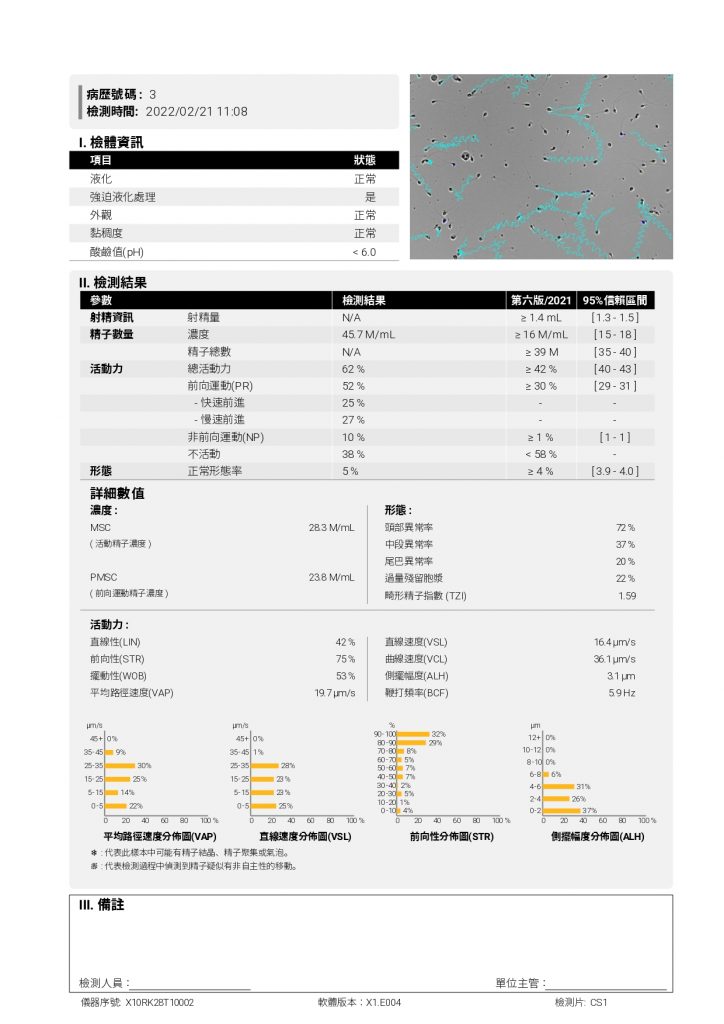Consultation and Infertility Examination
- ourservices
Consultation and Infertility Examination
The cause of infertility may due to the husband, the wife, or both parties. Therefore, it is highly recommended that both the couple complete the relevant tests to find the cause of infertility, and then discuss with the doctor for a customized treat plan.
- Personalized treatment plan: Based on individual needs and goals, we design the most effective treatment to achieve success.
- From our state-of-the-art in vitro fertilization (IVF) and labs with the most sophisticated air filtration to our in-house surgery center, no ne has spared no expense in caring for every detail that impacts a patient’s opportunity for success. This includes our AI-assisted time-lapse embryo incubator that improves IVF outcomes.
- During the course of treatment , your dedicated physician will lead a whole team to take care of you, from consultation, medication, oocyte retrieval to embryo transfer.
You are in good hands throughout the whole journey
Female Examinations

Blood Test
–On day 2 or 3 of menstruation, blood tests are arranged for the female patient to check hormones related to ovulation and ovarian function, such as Follicle Stimulating Hormone (FSH), Luteinizing Hormone (LH), Estradiol (E2), Prolactin, Thyroid Stimulating Hormone (TSH), Testosterone, Anti-Mullerian Hormone (AMH), etc. Depending on the patient’s condition, the physician in charge may request for other blood tests for evaluation.
Hysterosalpingography
–On day 8 or 9 of the menstrual cycle, after the menstrual bleeding stops and prior to ovulation, a hysterosalpingography (HSG) is arranged to check for patency of the fallopian tubes and for any possible uterine malformations.
Ultrasound
–Women with regular menstrual periods expected to ovulate on day 14 of the cycle are arranged to have a pelvic ultrasound to check for any possible uterine or ovarian tumors. If ovulation is ascertained by the ultrasound, couples are arranged to have intercourse. Depending on personal circumstances, the physician in charge may suggest to have a hysteroscopy or laparoscopy for the female patient.
Hysteroscopy (HSC)
The procedure is used to examine the womb. It is usually carried out on an outpatient or day-case basis, meaning the patient does not have to stay in the hospital overnight. During the procedure we might remove scar tissue from the uterus of if we find polyps and would remove it and check pathology to get precise diagnosis.
Male Examinations
Notice
- 1. Before storing semen, you’ll be asked to abstain from sex for 2 to 4 days
- 2. Refrain from smoking and alcohol consumption
- 3. Please inform us if you are taking any medication
- 4. Do not use a condom to collect the semen
- 5. Please wash your hands before collecting the semen (do not use hand soap)
Semen Analysis and Interpretation
- Our laboratory staff will examine the semen sample for many factors, including liquefaction time, sperm shape, appearance, pH value, volume, sperm count, motility and other parameters for a complete semen analysis. Aside from the conventional semen analysis, our center provides further examinations including a mixed antiglobulin reaction (MAR test) to test for anti-sperm antibodies and examination of sperm morphology under a high magnification microscope after Kruger’s staining for a more accurate diagnosis.
